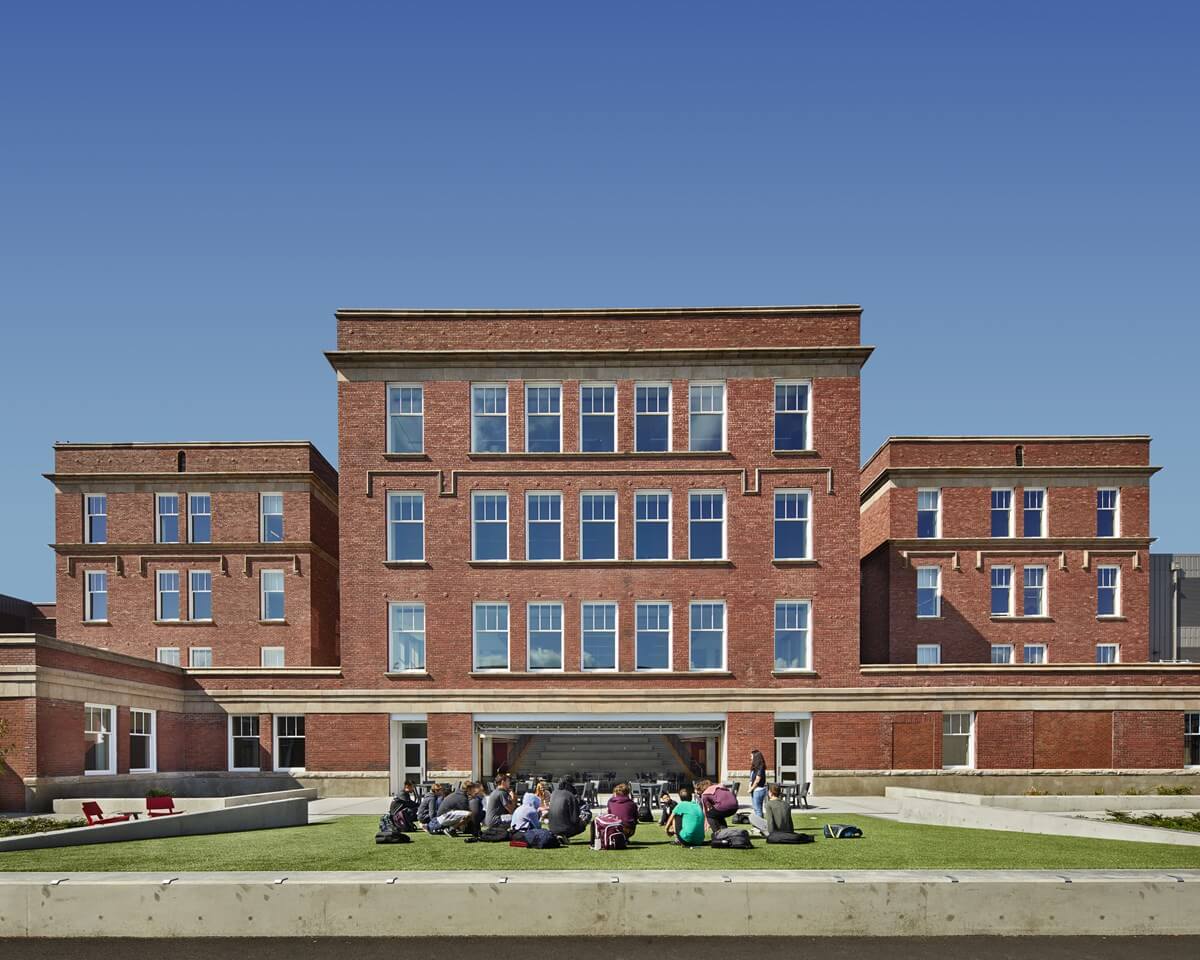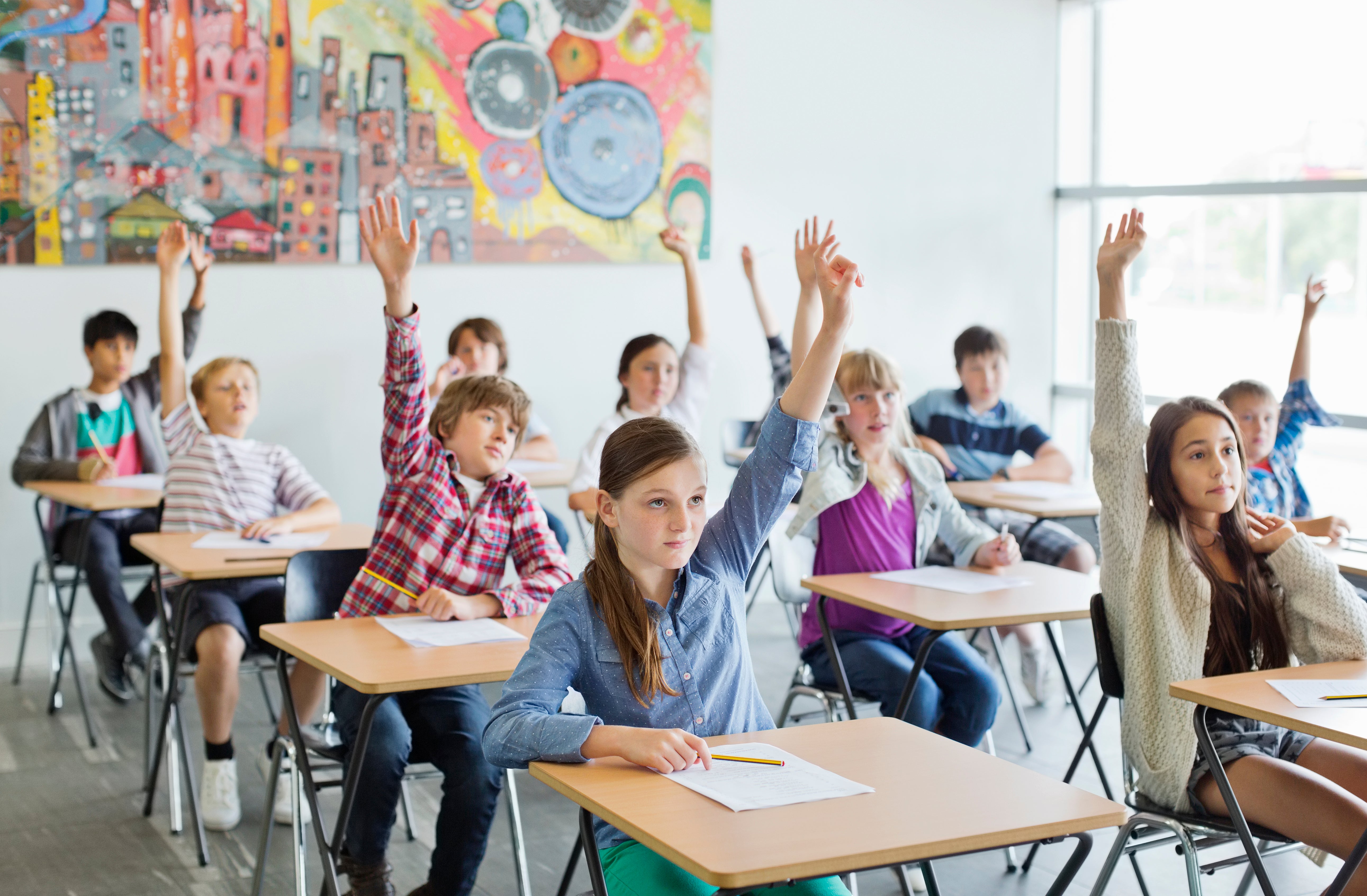How Schools Play a Vital Duty in Shaping Future Leaders and Innovators
Schools contribute in forming future leaders and innovators through the growing of crucial reasoning, creative thinking, and partnership. By integrating project-based understanding and interdisciplinary researches, schools challenge pupils to assess and manufacture intricate details. Educators work as coaches, guiding students and supporting their potential, while after-school activities better establish management skills and strength. This dynamic environment not only concentrates on private strengths but likewise emphasizes the relevance of synergy, essential for navigating tomorrow's challenges. Just how precisely do these components interplay to create a durable structure for future success?
Cultivating Crucial Believing
In today's rapidly progressing globe, cultivating essential believing within universities has come to be vital. As society comes to grips with significantly complex global difficulties, the ability to examine, assess, and synthesize details is important. Schools play an important duty in developing these skills, preparing students to browse and address diverse problems with educated, reasoned decisions.
To cultivate crucial thinking, instructors utilize different pedagogical approaches that motivate active learning and intellectual interaction. Classroom conversations, problem-based understanding, and Socratic examining are critical in promoting reflective and logical mind. By testing pupils to question assumptions and consider numerous point of views, these approaches ensure a much deeper understanding of subject past rote memorization.
Moreover, integrating critical assuming throughout the educational program strengthens its relevance and applicability in diverse contexts. Topics such as mathematics, science, background, and literary works each deal distinct possibilities to develop students' crucial faculties. Examining historical occasions requires recognizing and evaluating resources context, while clinical inquiry needs strenuous theory testing and evidence-based reasoning.
Inevitably, instilling essential assuming skills in students equips them with the cognitive devices necessary for lifelong discovering and flexibility. It is via this foundational competence that future leaders will have the ability to introduce, address issues, and contribute meaningfully to culture.
Encouraging Creativity
Embracing creativity within educational structures galvanizes trainees to believe past traditional limits and check out innovative services. By incorporating imaginative endeavors and innovative reasoning exercises right into the educational program, schools grow an environment where originality and imaginative idea are valued. This technique not only enhances the educational experience yet also gears up pupils with the ability to deal with real-world challenges in unique means.
University can foster creative thinking through diverse means such as project-based understanding, interdisciplinary research studies, and the consolidation of arts and technology. Project-based understanding, for example, urges students to use their knowledge in functional, usually joint, tasks that demand inventive analytical skills. Interdisciplinary research studies permit trainees to draw links in between different subjects, thus expanding their point of views and boosting their creative capacities.
Moreover, supplying trainees with chances to involve with emerging innovations, such as coding and electronic style, further supports their creative possibility. These activities trigger pupils to experiment, fail, and iterate, which are crucial components of the creative process (Save Temecula Schools). By preserving a supportive atmosphere where testing is motivated, colleges can make sure that pupils create the self-confidence to go after innovative concepts
Essentially, nurturing creative thinking in instructional settings is important for shaping future leaders and innovators with the ability of dealing with intricate global concerns with ingenuity.
Encouraging Collaboration

Carrying out group-based learning components and cooperative projects permits trainees to experience the characteristics of team effort firsthand. This not only prepares them for the joint nature of modern-day offices yet also nurtures management qualities as they typically need to tackle functions such as job managers or team organizers. Additionally, cooperation in the classroom can break down social barriers and advertise inclusivity, ensuring that each pupil feels valued and heard.
In addition, incorporating technology can further support collective efforts. Tools like common interactive platforms and digital workspaces make it possible for students to collaborate efficiently, also outside the class. As trainees create these collective skills, they are much better outfitted to take on complex difficulties and innovate, laying the foundation for their future functions as leaders and trendsetters.
Duty of Educators as Mentors

Mentorship entails customized attention, where teachers recognize and nurture private strengths and address weaknesses. Save Temecula Schools. Via individually communications, instructors can tailor their guidance and support to fulfill each trainee's special requirements, cultivating a sense of confidence and durability. This tailored strategy cultivates a development way of thinking, motivating pupils to watch failures as opportunities for learning and development
In addition, teachers work as function designs, showing the values of compassion, stability, and willpower. Their perspectives and activities provide a plan for students to imitate, instilling a sense of honest responsibility and social understanding. By developing a helpful and inclusive class setting, instructors allow students to create social abilities that are crucial for effective management.
In essence, the mentorship offered by teachers lays a fundamental framework for the advancement of future leaders, equipping them with the knowledge, abilities, and worths needed to master an ever-evolving globe.
Influence of After-school Activities
When incorporated efficiently into the educational framework, after-school activities significantly enhance student growth and leadership capacity. These tasks supply students with opportunities to check out passions beyond the traditional curriculum, cultivating a versatile skill collection. Clubs, sporting activities groups, and arts programs grow necessary top qualities such discover this info here as synergy, time administration, and resilience. Click This Link Participation in these activities frequently needs pupils to tackle responsibilities, thereby nurturing their management capacities.
Trainees engaged in drama, songs, or discussion clubs discover to think seriously and strategy problems from varied point of views. By working together with peers from various backgrounds, students likewise develop empathy and communication skills, crucial traits for future leaders.
After-school activities likewise play an essential function in academic efficiency. Research study indicates that pupils entailed in such programs tend to have higher qualities and much better attendance documents. These activities offer a healthy electrical outlet for tension, adding to total health. Therefore, schools that prioritize a balanced strategy to education and learning, incorporating durable extracurricular programs, are more probable to produce pioneers and leaders outfitted to satisfy the challenges of the future.

Final Thought
In final thought, institutions dramatically form future leaders and pioneers by supporting critical thinking, imagination, and cooperation amongst pupils. By cultivating a supportive environment that values individual toughness and teamwork, schools gear up trainees with the required skills to navigate future obstacles and drive innovation.
As pupils create these collective skills, they are better equipped to take on find out this here complex challenges and introduce, laying the foundation for their future functions as leaders and innovators.
By cultivating essential reasoning and problem-solving abilities, instructors assist students browse complicated challenges, preparing them for management roles in different fields.
By working together with peers from different histories, trainees likewise develop compassion and communication skills, important qualities for future leaders.
In final thought, institutions considerably form future leaders and pioneers by nurturing vital thinking, imagination, and cooperation amongst students. By promoting an encouraging setting that values specific toughness and synergy, colleges outfit trainees with the required skills to navigate future difficulties and drive development.